First death in Australia from coronavirus as man dies in WA hospital
A 78-year-old man has become the first person to die in Australia from the coronavirus, 10 days after being evacuated from infected cruise ship the Diamond Princess.
The family of a man in his late 70s who has become the first person to die in Australia from the coronavirus say he died “peacefully”.
The man, aged 78 and from Perth, was an evacuee from the Diamond Princess cruise ship and had been transferred to a WA hospital from the Howard Springs quarantine facility in Darwin last week. He died at the Sir Charles Gairdner Hospital in Perth overnight.
The Australian has confirmed the victim’s name is James Kwan.
The man’s wife, who is also infected, is still in hospital in a stable condition.
In a statement, she said “My husband passed away peacefully knowing that his family loved him,” as the family requested privacy.
The man contracted the virus aboard the Diamond Princess cruise, a 15-night trip around Asia which became stranded in a Japanese port when the virus took hold aboard the ship, infecting hundreds of passengers and crew.
The federal government evacuated Australian passengers to Howard Springs on February 20 after containment efforts aboard the ship — including confining passengers to their cabins for 14 days — failed to stop the spread of the disease.
Am very saddened at the death of an elderly Australian man from Perth, who contracted COVID-19 and we evacuated from the Diamond Princess in Japan. We join his family and friends in mourning his passing. COVID-19 is especially more severe for older people with other frailties.
— Scott Morrison (@ScottMorrisonMP) March 1, 2020
Western Australia’s Chief Health Officer Dr Andrew Robertson said the man had been transferred from Howard Springs to hospital on February 21 after testing positive. He expressed condolences over the man’s death but said it was “no reason to panic”.
Dr Robertson said the man’s wife was able to speak with her husband last night. He died in the hospital’s intensive care unit “in the early hours of this morning”, he said.
Dr Robertson said it was known that the disease could have serious effect on the elderly and people with chronic conditions. “Unfortunately, as it has in this case, this gentleman has passed away.”
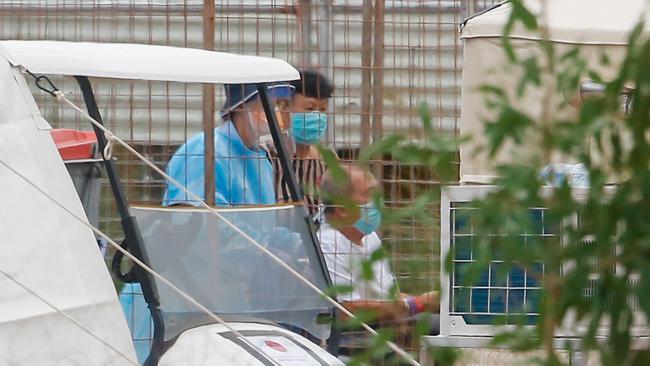
He said the man was in his late seventies, “and so fighting off the virus was a bit more difficult.” He wouldn’t go into details about the man’s medical history.
The man was placed in isolation on arrival in Perth and there was no risk to the general community or the nursing staff who attended him, he said.
“I’m very confident there. He was in a negative-pressure room and then in intensive care, and they were confident the protective equipment they were using was more than adequate.”
The elderly man was diagnosed while in quarantine in Howard Springs nine or ten days ago.
He said the man’s family would be supported.
Asked if the man’s wife had contracted the disease from her husband, he said: “We can’t speculate on how the wife got the disease, but obviously they were both on the Diamond Princess.”
Dr Robertson said it was important that the public understand the tragic case was related to the infected ship.
“The public shouldn’t be panicking at this stage. All of the cases are being managed very well, and we’re following up on different contacts and the like. I think people should be aware but not alarmed at this stage.”
The man’s wife remains in a negative pressure room in the hospital, and would only be moved to intensive care “if she required that.”
“The course of the disease will vary from person to person, so obviously that’s a clinical decision as to what care she needs.”
The man’s condition had been declared stable last week, but then deteriorated. Dr Robertson said the disease’s trajectory was not surprising.
“We know with this disease that often (patients) may have mild disease early on, but unfortunately the disease seems to progress over time as it moves from the upper respiratory tract down into the lower respiratory tract.
“It’s often the second week where people will deteriorate unfortunately and get a significant viral pneumonia.”
Dr Robertson raised the possibility of the onset of coronavirus in Australia overlapping with the annual influenza season starting around July.
“While it may take some time for the disease to become established in Australia, it may be occurring during or soon after the flu season. We would strongly recommend people getting a flu vaccination this year.”
He said the West Australian hospital system was coping well, but planning was underway to best prepare for an increased number of coronavirus cases, including the handling of seriously ill patients.
“We realise at this stage that it is likely we will get community spread in Australia at some stage in the next three to six months, and we need to prepare for that.”
Australian infections rise
NSW Health has confirmed the sixth case of COVOID-19, a woman in her 50s who recently arrived back from Iran, taking the number of confirmed Australian active cases to 28.
Earlier, Victoria’s health minister Jenny Mikakos said a young woman who had recently returned to Melbourne from Iran had tested positive to COVOID-19.
The women were not on the same plane.
“She is now isolated at home as she was clinically well enough to be discharged after being assessed at hospital,” Ms Mikakos tweeted.
The state’s health department was in the process of contacting passengers on her flight Malindo Air OD177 from Kuala Lumpur which stopped over at Denpasar before arriving in Melbourne on Friday morning, February 28.
“There was no further contact with the public,” Minister Mikakos said.
A young woman who recently returned from Iran to Melbourne has been confirmed with COVID-19. She is now isolated at home as she was clinically well enough to be discharged after being assessed at hospital (1/2) #springst
— Jenny Mikakos MP (@JennyMikakos) March 1, 2020
Meanwhile, Health Minister Greg Hunt has flagged further travel restrictions for Italy, as cases of coronavirus spike to more than 1100 there.
The Weekend Australian understands the government has for some time been considering ramping up the travel advice for all of Italy, where the worst outbreak of the disease in Europe has occurred.
After imposing a travel ban on foreign nationals from Iran on Saturday, the government is due to look at a number of democratic countries struggling with the global health epidemic.
Mr Hunt on Sunday said he asked the chief medical officers to pay specific attention to Italy as part of their daily coronavirus deliberations.
“I have asked them specifically today as part of their work to consider what the appropriate level of advice is for Italy,” he said in Melbourne.
“The good thing is, they make advice, they give advice, without fear or favour, and we have implemented it without fear or favour.
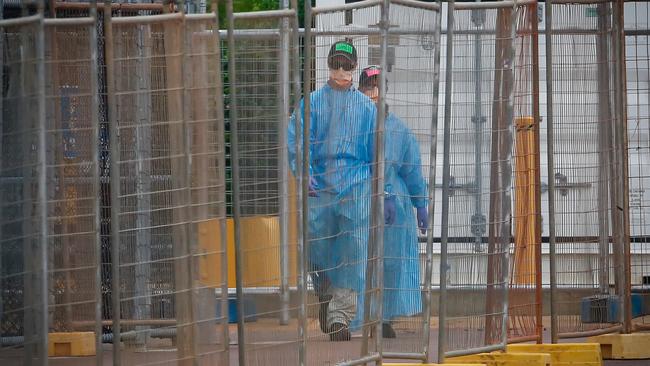
“But I have specifically asked them today to consider whether or not the current arrangements need to be changed in any way, shape or form.”
The current DFAT travel advice for Australians to exercise extreme caution in Northern Italy, which has all but shut down due to the coronavirus outbreak.
The government is also under pressure to reconsider its travel advice for South Korea, which has the second worst outbreak of coronavirus after China.
Home Affairs Minister Peter Dutton said on Sunday that the government was factoring in South Korea’s superior health system and transparency on coronavirus – compared to the Islamist regime in Iran. “If you look at the underreporting – or the lack of reporting – coming out of Iran to start with I think indicated that there was a real concern as to whether they had a handle on the numbers,” he told ABC News.
“Obviously South Korea has a more advanced health system and they have been reporting numbers for a period of time. So I think there are key differences between those different markets.”
A fifth person in NSW has been diagnosed with COVID-19 after recent travel in Iran, health authorities confirmed on Sunday. It follows a search for up to 40 people exposed to a Gold Coast beautician who tested positive to the virus after she also travelled to Iran.
Iran travel ban in place
The federal government has from today banned foreign nationals from entering Australia from Iran, where officially at least 43 people have died from coronavirus.
Twenty-seven people have now been confirmed to have the virus in Australia, with fears up to 40 more have been exposed to it by a Gold Coast woman who gave beauty treatments to customers after returning from Iran and falling ill.
The latest patient is an adult male in his 40s and has been admitted to Sydney’s Westmead Hospital with “relatively mild symptoms”.
Chief Health Officer Dr Kerry Chant said the previous four confirmed cases in NSW have all since been discharged from hospital.
“This latest case arrived in Sydney from Iran on 22 February 2020. He did not develop symptoms until 24 February 2020 and was seen at a hospital emergency department and tested on 28 February,” Dr Chant said.
“He was advised to be isolated at home while waiting for the test result which was confirmed positive for COVID-19 late on 29 February.”
A man in his 50s is also under investigation for possible COVID-19 based on preliminary medical tests.
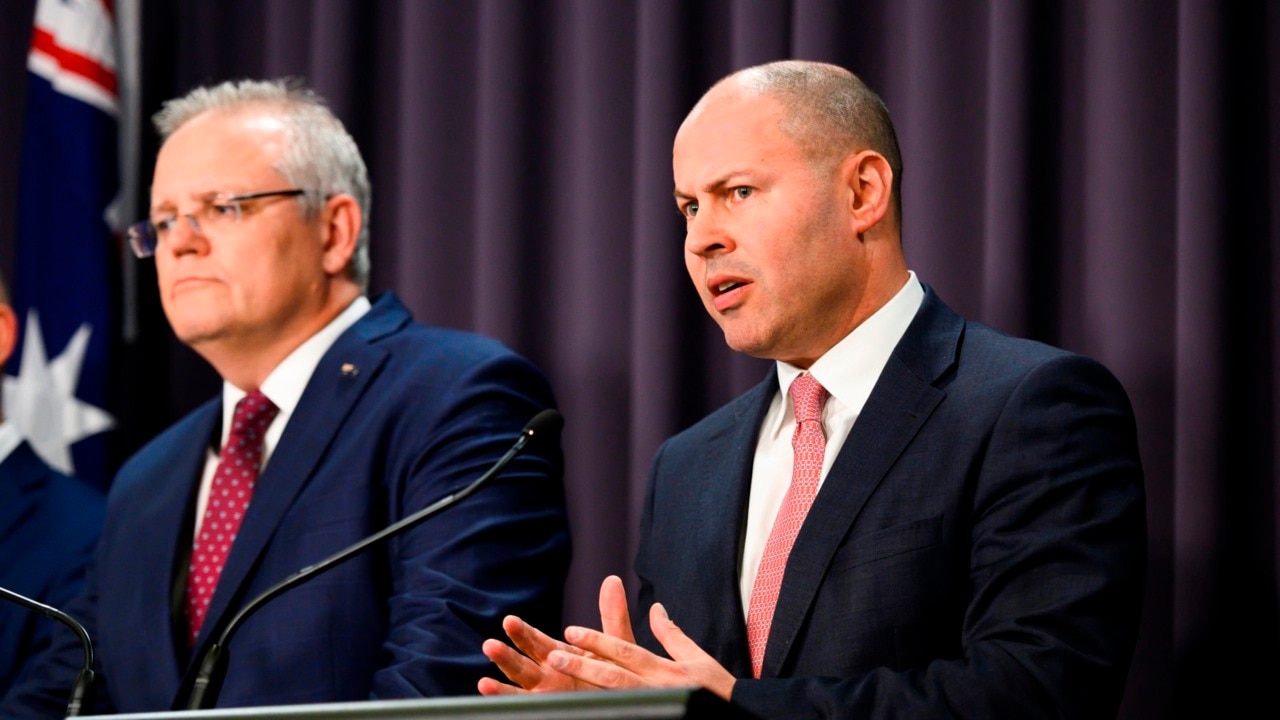
NSW Health said it would continue to work closely with federal agencies to monitor travellers returning from China and Iran.
“Travellers from Iran should be particularly vigilant for symptoms as there has been a rapid increase in COVID-19 activity there in recent days,” Dr Chant said.
From Sunday, Iran has joined China on the government’s ‘do not travel’ list, with foreign travellers from Iran barred from entry and all citizens and permanent residents who return from the country required to spend 14 days in self-imposed quarantine.
World Health Organisation on Saturday raised the global risk of the COVID-19 outbreak from “high” to “very high”.
The 63-year-old woman and beauty shop worker who recently returned from Iran is in isolation at the Gold Coast University Hospital, while a 79-year-old West Australian woman tested positive after being evacuated from the Diamond Princess cruise ship in Japan.
“Our advice is please proceed with your lives as normal,” Health Minister Greg Hunt said on Saturday. He would not rule out further travel bans, saying the government would follow the guidance of medical experts.
“Our advice is clear, categorical and medically based.
“The general community in Australia is safe … but we are not immune.
“We are as well prepared as any country in the world.”
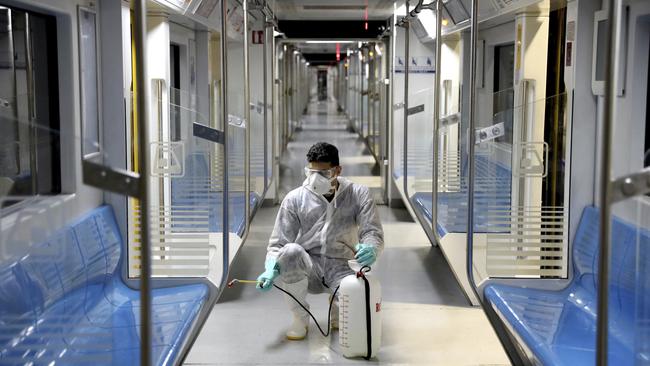
Iran is preparing for the possibility of “tens of thousands” of people getting tested for the new coronavirus as the number of confirmed cases spiked again Saturday.
Queensland’s Health Minister Steven Miles reassured residents the state was well prepared for a possible coronavirus outbreak after the 63-year-old beautician, its ninth known case in that state, returned a positive result.
Mr Miles commended the Gold Coast woman on taking the right steps since she returned to Queensland from Iran.
“As soon as she identified that she had been to a country where the novel coronavirus is spreading, and she was experiencing a symptom, she went home from work and when her symptoms worsened, she went to the hospital,” Mr Miles told reporters in Brisbane on Saturday.
“That is precisely what we have been urging people to do and it is a credit to her, a credit to our Gold Coast health team, who did a fantastic job of testing and isolating her, and of course our chief health officer and her team, who have been providing that message to the public.”
Customers of the Gold Coast hair and beauty salon – Hair Plus salon at Australia Fair at Southport – where the woman works are being urged to come forward as the beautician is understood to have come into contact with up to 40 people on Thursday before she started to develop symptoms and went home.
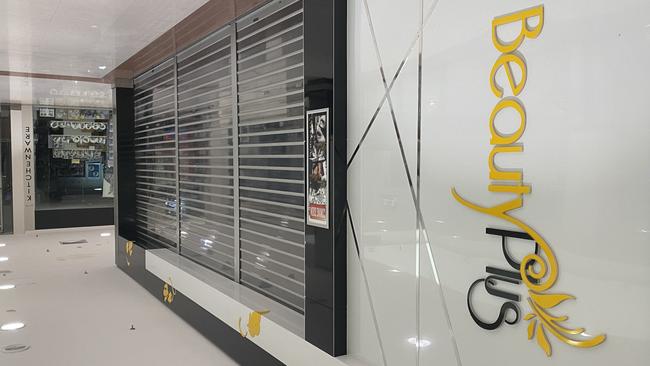
Queensland’s chief medical officer Dr Jeannette Young said anyone who attended the salon on Thursday from 11am should come forward for testing.
“She saw a number of clients each for brief interactions, so we believe the risk is incredibly low,” Dr Young said.
Dr Young said there was no need for anyone who was at the shopping centre at the same time to be concerned.
Australian health authorities are also urging people not to waste face masks or start stockpiling supplies out of fear of the coronavirus.
‘Australians don’t have good survival plans’
The advice comes as several cities around the world have reported supermarket shelves being cleared as people prepare themselves for lockdown situations in a behaviour often referred to as “panic buying.”
David Savage, an associate professor of behavioural economics at the Newcastle Business School, said Australians needed to prepare for disasters responsibly.
“Australians generally don’t have the disaster plans, they don’t have good survival plans,” Mr Savage told ABC News.
“We take it a bit too casually, I think. We need to make sure that if something happens you have a go bag, an emergency kit you can take and go.
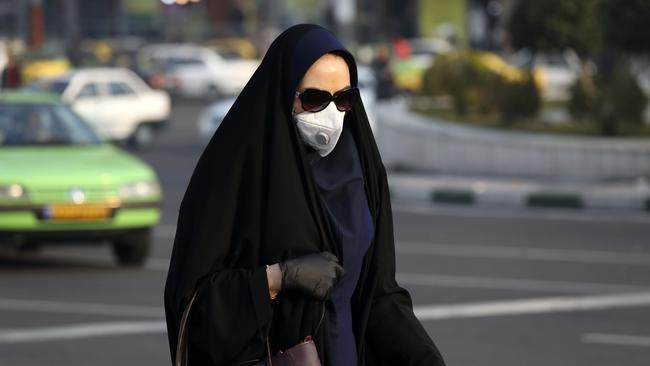
“But some people leave it a bit late, and that is the biggest problem, especially for the supply chain. They don’t handle shocks very well. If everybody decides to run to the supermarket at the last minute and start scraping things off the shelves, yeah, that is going to be a problem.”
But with the outbreak well contained in Australia, health authorities say stockpiling is not necessary and would lead to significant supply issues at supermarkets.
According to the Australian health department, there are 84,117 cases worldwide and 2872 reported deaths.
“The continuing increase in the number of cases and number of affected countries over the last few days are clearly of concern,” WHO chief Tedros Adhanom Ghebreyesushe said in Geneva.
He said that 24 Covid-19 cases had now been exported from Italy – the worst-hit country in Europe – to 14 countries and that 97 cases had been exported from Iran to 11 countries.
The UN health agency had previously labelled the global risk as “high” but still short of calling it a pandemic.
The Australian government is already putting in place plans to tackle a pandemic.
In particular, it is looking at how aged-care facilities could be locked down in the case of a coronavirus outbreak.
Prime Minister Scott Morrison says while some countries such as Japan are looking at closing schools, there is no need to do that in Australia based on current medical advice.
However, the virus known as COVID-19 affects the elderly more. “The bigger impact would be in things like aged-care facilities, the ability to lock those down, and to have the right care and support to those who are working in those places,” Mr Morrison said on Friday.
Health ministers who met in Melbourne on Friday agreed the Commonwealth would take the lead on an aged care advanced planning process.
Aged care providers received a letter this week from Chief Medical Officer Brendan Murphy outlining the need for them to have emergency plans in place. “While the number of cases of COVID-19 is currently small in Australia, it is possible that this situation could change and services need to plan and be prepared for this,” he wrote.
With Christine kellett, Emily Ritchie, Lachlan Moffet Gray







To join the conversation, please log in. Don't have an account? Register
Join the conversation, you are commenting as Logout